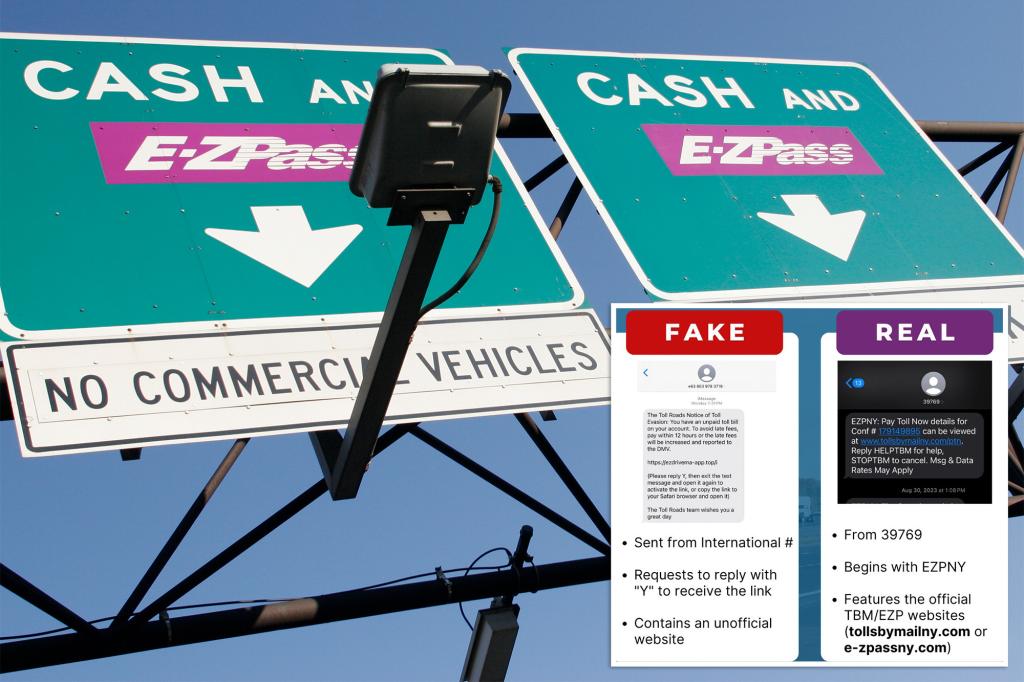World
E-ZPass scammers try to cash in on NYC congestion pricing with phony text-message shakedown

E-ZPass Scam Alert: What Motorists Need to Know
Introduction
In recent weeks, a new scam has emerged in New York, targeting drivers who use E-ZPass, the electronic toll collection system. The scam involves fraudulent text messages that claim to be from official sources, warning motorists about unpaid toll invoices and threatening excessive late fees. Authorities have issued warnings to alert residents and drivers about this growing threat.
How the Scam Works
The scammers send SMS text messages that appear to be official communications from E-ZPass or related agencies. These messages claim that drivers owe money for unpaid tolls related to the Congestion Relief Zone, formerly known as the Central Business District Tolling Program. They urge recipients to pay their bills immediately to avoid additional penalties. Some messages even reference fake entities, such as "NY Toll Services," to sound legitimate. However, transportation officials have explicitly stated that these messages are not authorized communications from E-ZPass or any associated toll agencies.
The Link to Congestion Pricing
The scam appears to be taking advantage of the recent rollout of Governor Kathy Hochul’s congestion pricing plan, which went into effect on January 5. This plan imposes a $9 toll on cars entering Manhattan below 61st Street during peak hours. The goal of the plan is to reduce traffic congestion in Midtown and raise funds for MTA capital projects. However, the plan has been met with frustration and confusion among drivers, creating an environment where scammers can exploit.
Tips to Avoid Falling Victim
Transportation officials have advised motorists to be vigilant and not to click on links provided in these fraudulent messages. E-ZPass has emphasized that it will never ask for personally identifiable information, such as social security numbers or dates of birth, via text message or email. Legitimate communications from E-ZPass will only direct customers to official websites, such as EZPassNY.com and TollsByMailY.com. Anyone who receives a suspicious message is encouraged to report it to the FBI’s Internet Crime Complaint Center at http://www.ic3.gov.
Calls for Greater Awareness
Advocacy groups and transportation experts have called on the MTA to do more to alert E-ZPass users about the scam. Corey Bearak, a senior policy advisor for the group Keep NYC Congestion Tax Free, expressed concern that the MTA has not issued a direct warning to its customers via email. Bearak also criticized the MTA for failing to disclose how Congestion Pricing Tax revenues are being used, which could further confuse and unsuspecting drivers.
Final Thoughts
While the MTA has not yet responded to requests for comment, other transportation agencies, such as the Port Authority of New York and New Jersey and the New York State Thruway Authority, have issued warnings about the scam. Westchester County DA Susan Cacace also issued a warning this week. Motorists are urged to remain cautious and to verify any communications about toll payments through official channels. By staying informed and vigilant, drivers can protect themselves from falling victim to this E-ZPass scam.











